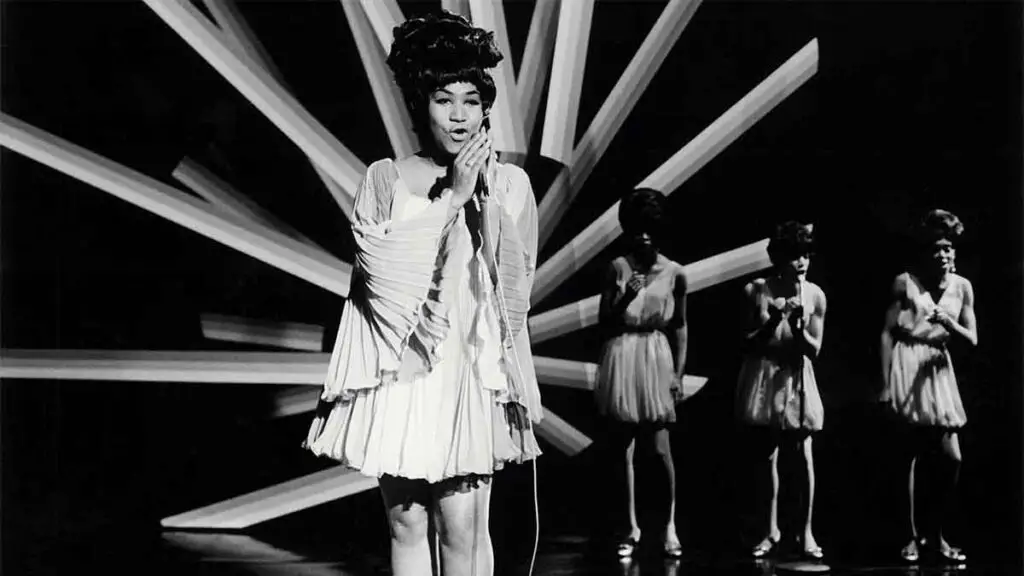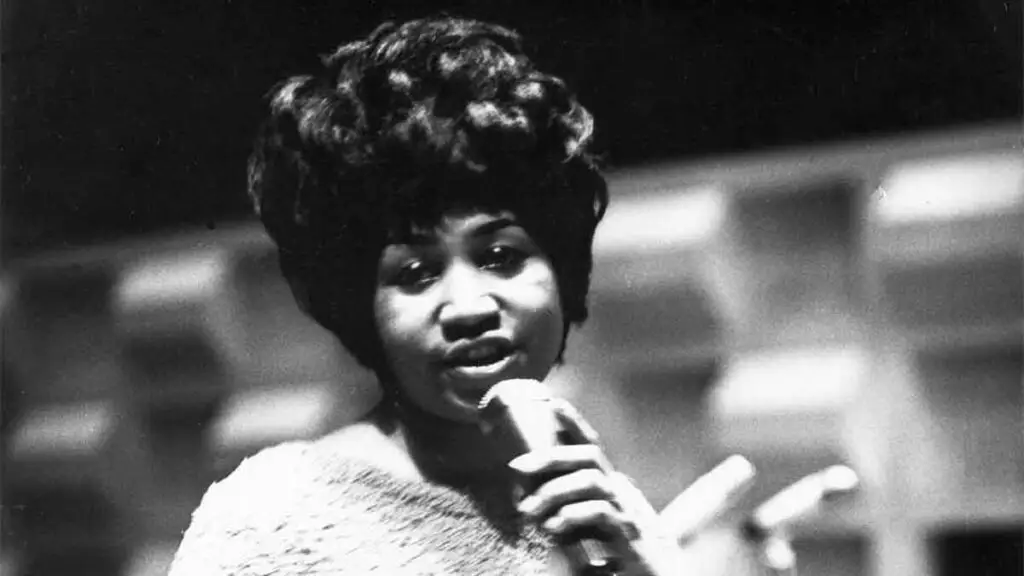Aretha Franklin’s transformation from a gospel prodigy to the undisputed “Queen of Soul” is one of the defining musical journeys of the 1960s. With a voice that could shake the rafters and an undeniable command over her craft, Franklin not only became a commercial success but a cultural force. Her breakthrough in the ’60s reshaped R&B, solidified soul as a dominant genre, and cemented her status as an icon of empowerment.
Contents
From the Pulpit to the Recording Studio
Born in 1942 in Memphis and raised in Detroit, Aretha Franklin grew up immersed in gospel music. Her father, the renowned Reverend C.L. Franklin, was a leading voice in the Black church, and Aretha’s early singing experience came through his New Bethel Baptist Church. Gospel legends like Mahalia Jackson were family friends, and Franklin’s powerful voice was nurtured in a world where music was spiritual, emotional, and deeply personal.
At just 18, Franklin took a leap of faith. Encouraged by her father, she moved to New York in 1960 to pursue a career in secular music. She signed with Columbia Records, where producer John Hammond saw immense potential in her jazz and blues-infused style. However, despite critical praise, Columbia struggled to find the right musical direction for Franklin, resulting in moderate commercial success but no true breakout moment.

Finding Her Sound at Atlantic Records
Everything changed in 1966 when Franklin signed with Atlantic Records. Under the guidance of producer Jerry Wexler, she finally found a sound that played to her strengths. Wexler, a master at recognizing raw talent, famously described Franklin as having “the greatest voice of our time.”
Franklin’s first Atlantic recording session took place at FAME Studios in Muscle Shoals, Alabama—an epicenter of Southern soul. It was there that she cut “I Never Loved a Man (The Way I Love You),” which became her first major hit, reaching No. 1 on the R&B charts and breaking into the pop Top 10. The combination of Franklin’s impassioned vocals and the gritty Muscle Shoals sound created a new blueprint for soul music.
The Song That Defined an Era: “Respect”
In 1967, Franklin took Otis Redding’s song “Respect” and made it her own. What was originally a plea from a man to his partner became, in Franklin’s hands, an anthem of empowerment. Backed by a powerhouse arrangement and the iconic “R-E-S-P-E-C-T” refrain, the song shot to No. 1 on the Billboard Hot 100 and became an enduring symbol of the civil rights and women’s movements.
Reflecting on its impact, Franklin later said in her autobiography in 1999, “It [reflected] the need of a nation, the need of the average man and woman in the street, the businessman, the mother, the fireman, the teacher — everyone wanted respect.” The song remains one of the most influential recordings in American history.
Her music continued to have a lasting cultural impact, with her songs frequently appearing in films, from the empowering diner scene in The Blues Brothers (1980) to the unforgettable moment in School of Rock (2003) when a young student belts out “Chain of Fools.” Her voice has become a shorthand for confidence, rebellion, and unshakable power.

Chart Domination and Cultural Influence
Following “Respect,” Franklin delivered a string of hits that showcased her versatility and emotional depth. Songs like “Chain of Fools,” “(You Make Me Feel Like) A Natural Woman,” and “Think” became soul standards, each carried by her signature mix of gospel fervor and raw emotion. By the end of the decade, she had secured multiple Grammy Awards and over a dozen Top 10 R&B hits.
Beyond the charts, Franklin’s music became deeply intertwined with social change. She performed at Dr. Martin Luther King Jr.’s memorial service in 1968, and her songs were rallying cries for a generation demanding justice and equality.
“No one could copy her,” Wexler said, of recording “Respect” with Franklin. “How could they? She’s all alone in her greatness.”
Legacy of Her 1960s Breakthrough
Aretha Franklin’s rise in the 1960s was more than a personal triumph; it was a revolution in sound and spirit. Her ability to fuse gospel roots with mainstream R&B set a new standard for vocalists, and her influence stretched far beyond music. As the decade closed, Franklin had not only claimed her title as the “Queen of Soul” but had redefined what soul music could be.
Her impact on generations of artists—from Whitney Houston to Beyoncé—is undeniable. But more than that, Franklin’s voice remains a testament to the power of music as a force for change, resilience, and, above all, respect.




